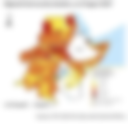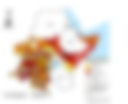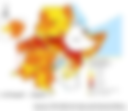Who are we?
The Food Security and Nutrition Working Group (FSNWG) is a regional platform, currently co-chaired by ICPAC and FAO. It’s goal is two-fold: to provide an up-to-date food security and nutrition situation analysis (early warning) and to offer a forum to build consensus on critical issues facing policy and interventions. The FNSWG has served regional governments, donors, and non-governmental agencies since the early 2000’s. Current membership includes approximately 80 organisations (IGAD, UN agencies, NGOs, donors, and research institutions) who contribute to the operation of the working group, and its nutrition, markets, food security information, livestock and pastoralist sub-groups.

Featured Updates

FSNWG Food Security and Nutrition Update - March 2025
In March 2025, an estimated 85 million people in the region were highly food insecure and in urgent…

FSNWG Food Security and Nutrition Update - January 2025
In January 2025, an estimated 82.1 million people in the region were highly food insecure and in ur…

IGAD Regional Focus of the 2024 Global Report on Food Crises
The IGAD Regional Focus of the 2024 Global Report on Food Crises underscores a deepening food insec…

East Africa cross-border trade bulletin for January - March 2024
The Market Analysis Sub-group of the Food Security and Nutrition Working Group (FSNWG) monitors inf…
Browse Updates
Filter by Update Type
Filter by Year
Filter by Month
Showing 68 results

Special Report: El Niño and Positive Indian Ocean Dipole to have Significant Multi-Sectoral Impacts in East Africa
While El Niño events often receive the most global attention, El Niño/La Niña is not the only climate driver that is important for potential rainfall outcomes in East Africa between September and December. A positive …

Food Security Statement, August 2023
Based on recent IPC data, about 65.8 million people in 10 of the 13 countries covered by the FSNWG were highly food insecure (IPC Phase 3+) in August 2023. Of these, 35.4 million were from …

Global Report on Food Crises 2023, Regional focus on IGAD Member States
The report highlights the devastating reality faced by 301,000 people who experienced Catastrophe (IPC Phase 5) in 2022, with Somalia and South Sudan accounting for 214,000 people and 87,000 people respectively.
The population facing acute …

Global Report on Food Crises 2023
The Global Report on Food Crises (GRFC) 2023 estimates that over a quarter of a billion people were acutely food-insecure and required urgent food assistance in 58 food-crisis countries in 2022. This is the highest …

Food Security and Nutrition snapshot
- According to the IPC, at least 63.4 million people in 10 of the 13 countries covered by the FSNWG were highly food insecure (IPC Phase 3+) in May 2023. In addition, 20.1 million people were …

Food Security Statement, March 2023
According to the IPC, at least 55.3 million people in 10 of the 13 countries covered by the FSNWG were highly food insecure (IPC Phase 3+) in March 2023. Of these, 25.8 million were from …
